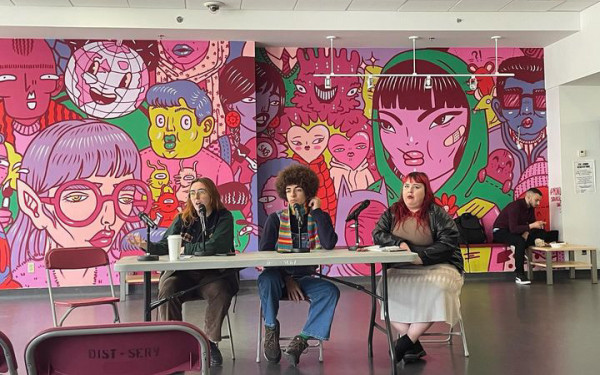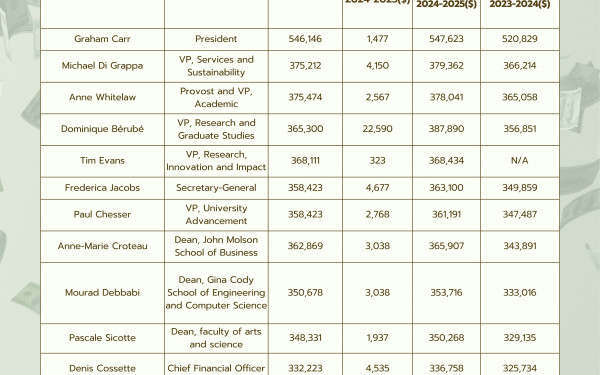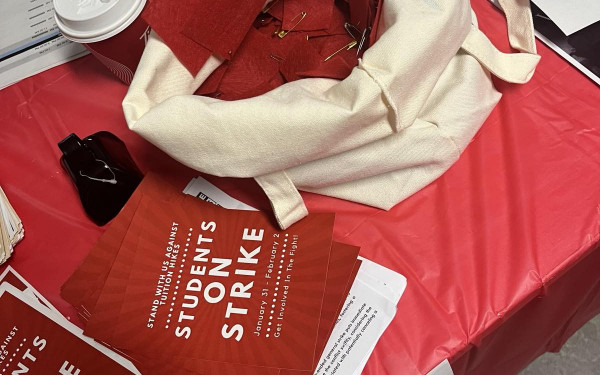Budget cuts and austerity measures disturbing academic life
Increasing cuts leave students struggling with course reductions, long waitlists and delayed advisor meetings
Since Quebec’s tuition hikes at English-language universities came into effect in the Fall 2024 semester, Concordia University has been implementing budget cuts due to increased financial difficulties.
As a result, several student services have been impacted, leaving many students feeling frustrated.
“A lot more [of the] e-mails I have received this semester have been: ‘All these classes I need to graduate are full,’” said Angelica Antonakopoulos, academic coordinator at the Arts and Science Federation of Associations.
Concordia is facing what it refers to as “significant financial difficulties” in its 2025 budget updates, with the university facing a starting deficit of $79.4 million for the 2025-26 fiscal year. Driving factors include the carryover deficit from the 2024-24 school year, a decline in enrolment and changes to government funding.
According to the university’s recovery plan, the target deficit for the next school year is “no more than $31.6 million.” Antonakopoulos alleges that Concordia’s recent hiring freeze has led to a shortage in academic advisors.
“If you have a major and a minor, and you need to figure out how these two work together [...] you really want to see a general advisor,” Antonakopoulos said, “and I’ve reported that students go to access these [advisor's] calendars and there is no availability for, like, months at a time.”
According to Concordia spokesperson Julie Fortier, budget cuts have not impacted the number of advisors at Concordia, and the university has not seen an increase in delays to see an advisor.
“Students should know that in addition to departmental advisors, they can meet with faculty advisors or stop by the Student Service Station, which offers a weekly drop-in session with advisors,” Fortier said, adding that Concordia is currently reviewing the advising model to increase availability and support.
Principal of the School of Community and Public Affairs Anna Sheftel said that many students are having difficulties finding electives due to classes in other programs being full, even for students majoring in those programs.
“As a department chair, when the cut first started to happen,” Sheftel said, “we talked about [it] at the higher levels that the goal was to cut in a way that students would not feel it, and it is clear that students are feeling it.”
According to Sheftel, political science is one of the departments that students have reported the most trouble registering for. She explains that many courses in her department were cut due to austerity measures.
President of the Political Science Student Association (PSSA) Anne-Catherine Mimar said they have witnessed those difficulties first hand.
“The issues that the students are facing, myself included, is that very little classes are offered compared to what is actually listed in the undergraduate calendar published on the Concordia website,’’ Mimar said.
As part of the PSSA, Mimar said that they know who the right person to contact is when problems arise, but they fear that their fellow political science students may not.
Fortier said that Concordia is constantly monitoring its course offerings to ensure students “complete their programs in a timely fashion.” She also told The Link that the university is currently developing a tool that should make the selection process for elective classes easier.
Associate professor in political science Julian Spencer-Churchill said that he is fighting alongside other political science teachers to keep the caps on the classes.
“Political science professors are furious over the wait lists to get into classes in part because it is unprofessional,” Spencer-Churchill said. “But most importantly, because professors want interested students in their classes, and not desperate credit-seeking students abandoned by a musical chairs system of class registration.”
According to Sheftel, one of the first steps students can take to change things is simply by being aware of the budget decisions and repartitions.
“I think it is important for students to start paying attention a little bit and thinking about how they can have their voices heard about how they are being affected,” Sheftel said.
Mimar said they encourage students to contact their association members if they are facing issues.
“Don’t be afraid to pester and push,” Mimar said, “because if you give up at the first hiccup on your way, the blocks are just going to pile up for other students that are behind you in the exact same situation.’’
This article originally appeared in Volume 45, Issue 10, published March 4, 2025.







